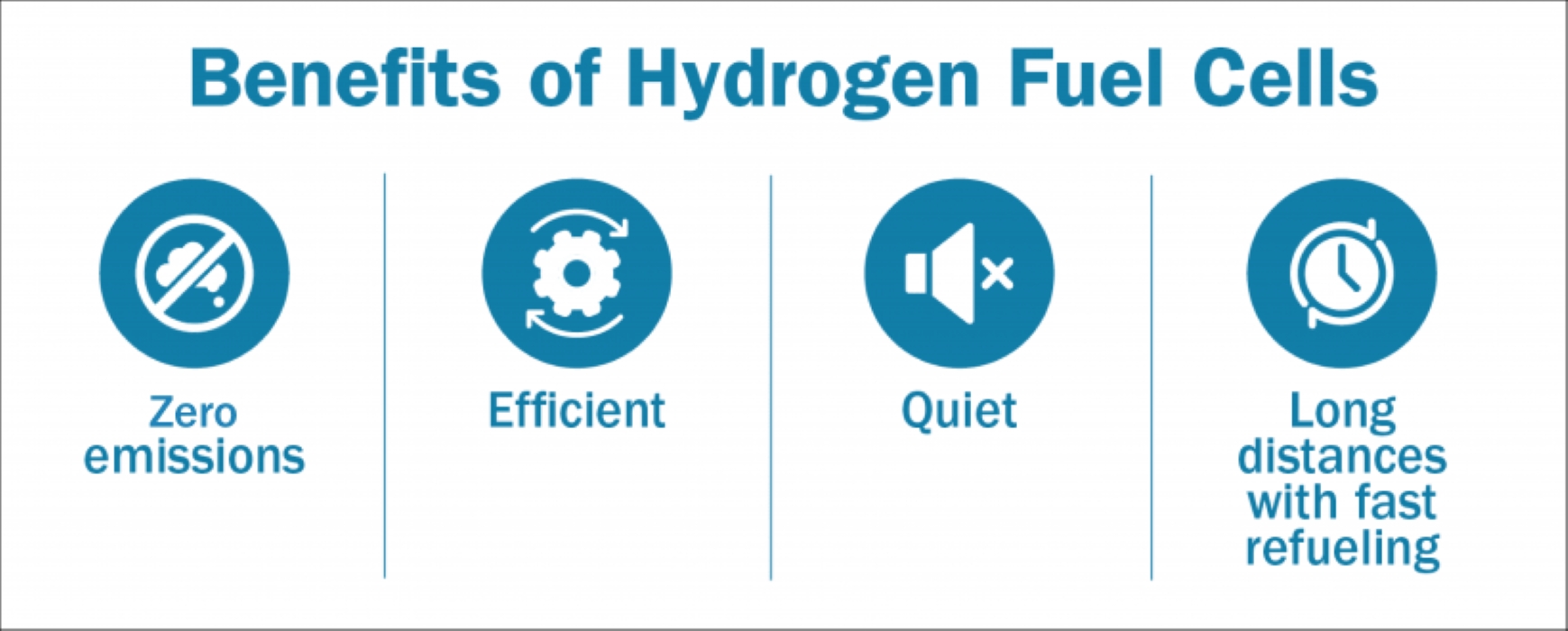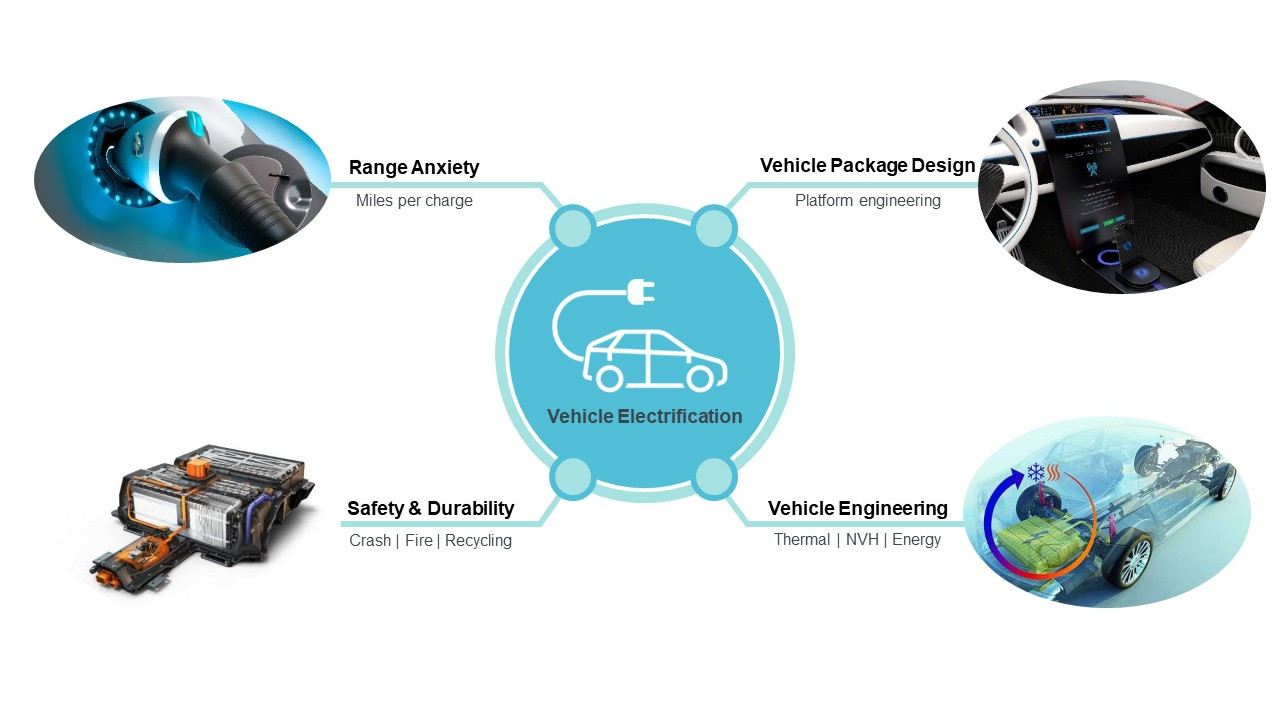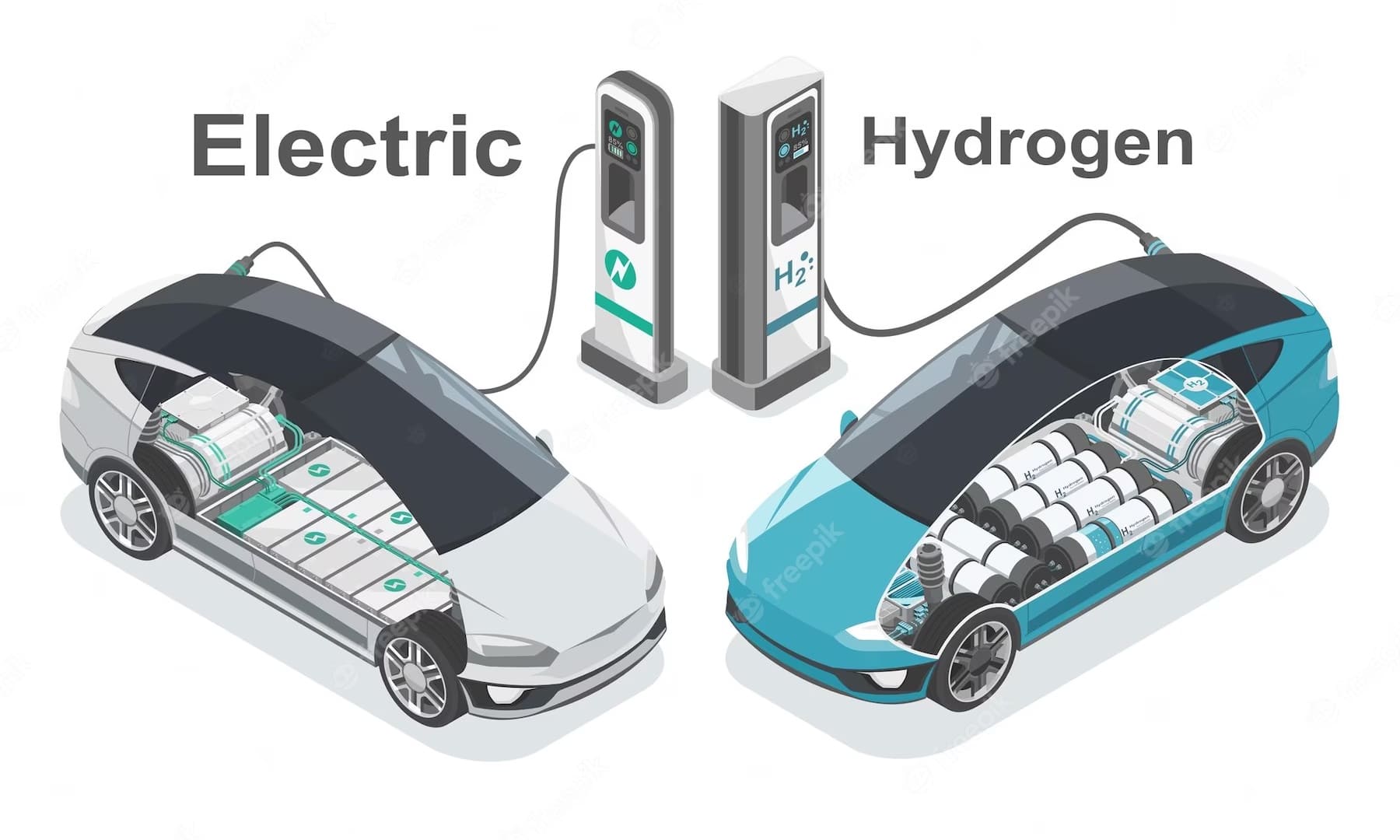The race to find the most sustainable future for transportation is heating up, with hydrogen and electric vehicles (EVs) leading the charge. Both technologies offer promising alternatives to traditional internal combustion engines, but they come with their own sets of advantages and challenges.
This article looks into the key differences between hydrogen and electric cars, examining their potential to shape the future of sustainable transportation.
Hydrogen Cars
Hydrogen vehicles, also known as fuel cell electric vehicles (FCEVs), use hydrogen gas to generate electricity.
The hydrogen is stored in a pressurized tank and combined with oxygen in a fuel cell to produce electricity, which powers an electric motor. The only byproduct of this process is water vapor, making hydrogen cars an environmentally friendly option.
Advantages of Hydrogen Cars:
1. Refueling Speed: Hydrogen cars can be refueled in minutes, similar to traditional gasoline vehicles, making them convenient for long-distance travel.
2. Long Range: FCEVs typically have a longer driving range compared to most battery electric vehicles (BEVs), which makes them suitable for longer trips.
3. Zero Emissions: The only emissions from hydrogen cars are water vapor, making them a clean alternative to fossil fuel-powered vehicles.

Challenges of Hydrogen Cars:
1. Infrastructure: The biggest hurdle for hydrogen cars is the lack of refueling infrastructure. Hydrogen refueling stations are sparse, limiting the practicality of owning an FCEV.
2. Production and Storage: Producing hydrogen in an environmentally friendly manner (e.g., via electrolysis using renewable energy) is still expensive and energy-intensive. Additionally, storing and transporting hydrogen safely poses challenges.
3. Cost: Hydrogen vehicles and the infrastructure to support them are still relatively expensive, which can be a barrier to widespread adoption.
Also Read: Government Incentives for EVs, Who Really Benefits From The Tax Cuts?
Electric Cars
Electric vehicles (EVs), or battery electric vehicles (BEVs), use rechargeable batteries to store electricity, which powers an electric motor. These vehicles can be charged at home or at public charging stations and produce zero tailpipe emissions.
Advantages of Electric Cars:
1. Charging Infrastructure: The network of electric charging stations is expanding rapidly, making it easier for EV owners to charge their vehicles.
2. Efficiency: EVs are highly efficient, converting a larger percentage of energy from the battery to power the wheels compared to internal combustion engines.
3. Lower Operating Costs: Electric cars have fewer moving parts, leading to lower maintenance costs. Additionally, electricity is generally cheaper than gasoline, reducing operating expenses.
Challenges of Electric Cars:
1. Charging Time: Although charging infrastructure is improving, charging an electric car can still take longer than refueling a hydrogen or gasoline vehicle.
2. Range Anxiety: Despite advancements in battery technology, range anxiety remains a concern for potential EV buyers, especially for long-distance travel.
3. Battery Production and Disposal: The production of lithium-ion batteries involves the extraction of raw materials, which can have environmental and social impacts. Additionally, the disposal and recycling of batteries pose challenges.

Both hydrogen and electric cars have the potential to play significant roles in the future of sustainable transportation. Hydrogen vehicles offer the advantage of fast refueling and long range, but face challenges related to infrastructure, production, and cost.
Electric vehicles, on the other hand, benefit from an expanding charging network and greater efficiency but still struggle with charging times and battery-related issues.
The real sustainable future may not be a matter of choosing one over the other but rather a combination of both technologies, each serving different needs and applications.
By leveraging the strengths of hydrogen and electric vehicles, we can move towards a more sustainable and environmentally friendly transportation system.
Also Read: The Debate of Over-the-Air Software Updates and Consumer Rights

